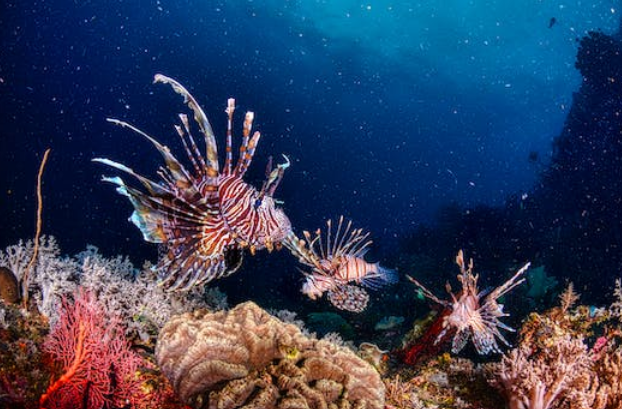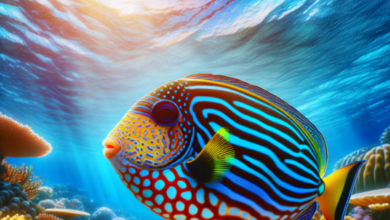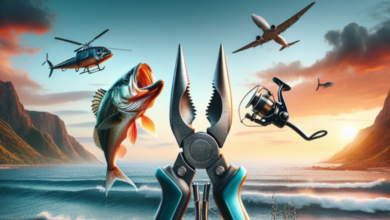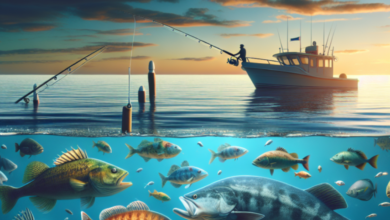Introduction
Are you an avid angler looking to cast your line in the beautiful saltwater bodies of Maine? Before you head out on your fishing adventure, it’s important to familiarize yourself with the saltwater fishing regulations in this coastal state. Understanding these regulations ensures that you stay compliant, protect the ecosystem, and have an enjoyable fishing experience. In this comprehensive guide, we will delve into the intricacies of Maine’s saltwater fishing regulations, providing you with the knowledge you need to fish responsibly and legally.
Understanding Maine’s Saltwater Fishing Regulations
1. Importance of Fishing Regulations
Fishing regulations play a crucial role in maintaining healthy fish populations and preserving the delicate balance of marine ecosystems. By adhering to these regulations, you contribute to the sustainability of fish stocks and protect the natural habitats that support them. Maine’s saltwater fishing regulations are designed to ensure the long-term viability of fish populations while allowing anglers to enjoy their favorite pastime.
2. Species-Specific Regulations
Maine is home to a diverse range of saltwater fish species, each with its own set of regulations. Understanding these regulations is vital to avoid unintentional violations and fines. Some common species targeted by anglers in Maine include striped bass, bluefish, cod, flounder, and mackerel. It’s important to familiarize yourself with the specific rules and limits for each species before heading out on your fishing trip.
3. Bag and Possession Limits
To maintain sustainable fish populations, bag and possession limits are imposed on various species. These limits determine the maximum number of fish you can catch and keep in a single day or possess at any given time. It’s crucial to know the bag and possession limits for the species you intend to target, as exceeding these limits can result in penalties and harm the fish population.
4. Size Restrictions
Alongside bag and possession limits, size restrictions are another important aspect of saltwater fishing regulations. These restrictions aim to protect juvenile fish and allow them to reach maturity, ensuring the breeding and survival of future generations. Size limits are typically set for different species, specifying the minimum size at which a fish can be legally harvested. Always measure your catch accurately to ensure compliance with these regulations.
5. Seasonal and Area Closures
To protect spawning grounds and sensitive habitats, seasonal and area closures are implemented in Maine’s saltwater fishing regulations. These closures restrict fishing activities during specific times of the year or in designated areas. It’s essential to stay updated on the latest closures and adhere to them to avoid ecological harm and legal consequences.
6. Licensing Requirements
Before engaging in saltwater fishing in Maine, it is mandatory to obtain the appropriate fishing licenses. Licenses ensure that anglers are knowledgeable about the regulations and contribute to the management of fisheries. Maine offers various fishing license options, including resident and non-resident licenses. Make sure to obtain the correct license for your situation to fish legally and responsibly.
7. Gear and Bait Restrictions
Maine’s saltwater fishing regulations also encompass restrictions on fishing gear and bait. These restrictions are designed to prevent overfishing and minimize harm to non-target species. Specific gear, such as gaff hooks and spear guns, may be prohibited in certain areas. Additionally, the use of certain types of bait, like live marine worms, might be restricted to prevent the introduction of invasive species. Familiarize yourself with these gear and bait restrictions to ensure compliance.
8. Protected Species and Catch-and-Release
Maine is home to several protected and endangered species, including various types of whales and sea turtles. It’s important to be aware of these species and their habitats to avoid accidental interactions or harm. Maine’s saltwater fishing regulations often require anglers to release certain protected species immediately and report any incidental catches. By practicing catch-and-release techniques, you contribute to the conservation efforts and protect these vulnerable marine creatures.
9. Commercial Fishing Regulations
Maine’s saltwater fishing regulations not only apply to recreational anglers but also extend to commercial fishing activities. Commercial fishing is tightly regulated to prevent overfishing and ensure the sustainable harvest of marine resources. Strict rules govern commercial licensing, reporting, and gear restrictions. Understanding the commercial fishing regulations helps maintain a balance between the needs of commercial fishermen and the conservation of fish stocks.
10. Enforcement and Penalties
To uphold the integrity of saltwater fishing regulations, Maine’s Marine Patrol enforces compliance through regular patrols and inspections. Violating fishing regulations can result in penalties, fines, and even suspension of fishing privileges. It is essential to familiarize yourself with the regulations and stay up-to-date with any changes to avoid unintentional violations and associated consequences.
Conclusion
By now, you should have a solid understanding of Maine’s saltwater fishing regulations. Remember, these regulations exist to protect the marine environment, sustain fish populations, and ensure a fair and enjoyable fishing experience for everyone. Always stay informed, follow the rules, and respect the delicate balance of Maine’s saltwater ecosystem. Now, go out there, cast your line, and enjoy the thrill of fishing while preserving the beauty of Maine’s coastal waters.
FAQ
1. Can I fish in Maine’s saltwater without a license?
No, it is mandatory to have a fishing license to engage in any saltwater fishing activity in Maine. Licenses are available for both residents and non-residents, and they contribute to the sustainable management of fisheries.
2. Are there any size restrictions for saltwater fish in Maine?
Yes, Maine has size restrictions for various saltwater fish species. These restrictions specify the minimum size at which a fish can be legally harvested. Always measure your catch accurately to ensure compliance with these regulations.
3. Can I use live marine worms as bait for saltwater fishing in Maine?
The use of live marine worms as bait might be restricted in certain areas of Maine to prevent the introduction of invasive species. Make sure to check the specific regulations and use approved bait to avoid any violations.
4. What should I do if I accidentally catch a protected species while saltwater fishing in Maine?
If you accidentally catch a protected species while saltwater fishing in Maine, it is crucial to release it immediately and report the incident to the appropriate authorities. Prompt reporting helps in conservation efforts and protects these vulnerable marine creatures.
5. Are there any closures or restrictions on fishing areas in Maine’s saltwater?
Yes, Maine’s saltwater fishing regulations include seasonal and area closures to protect spawning grounds and sensitive habitats. Stay updated on the latest closures to ensure you are fishing in permitted areas and times.
*Note: The information provided in this article is accurate at the time of writing. It is always recommended to refer to the official Maine Department of Marine Resources for the most up-to-date and detailed saltwater fishing regulations.*




